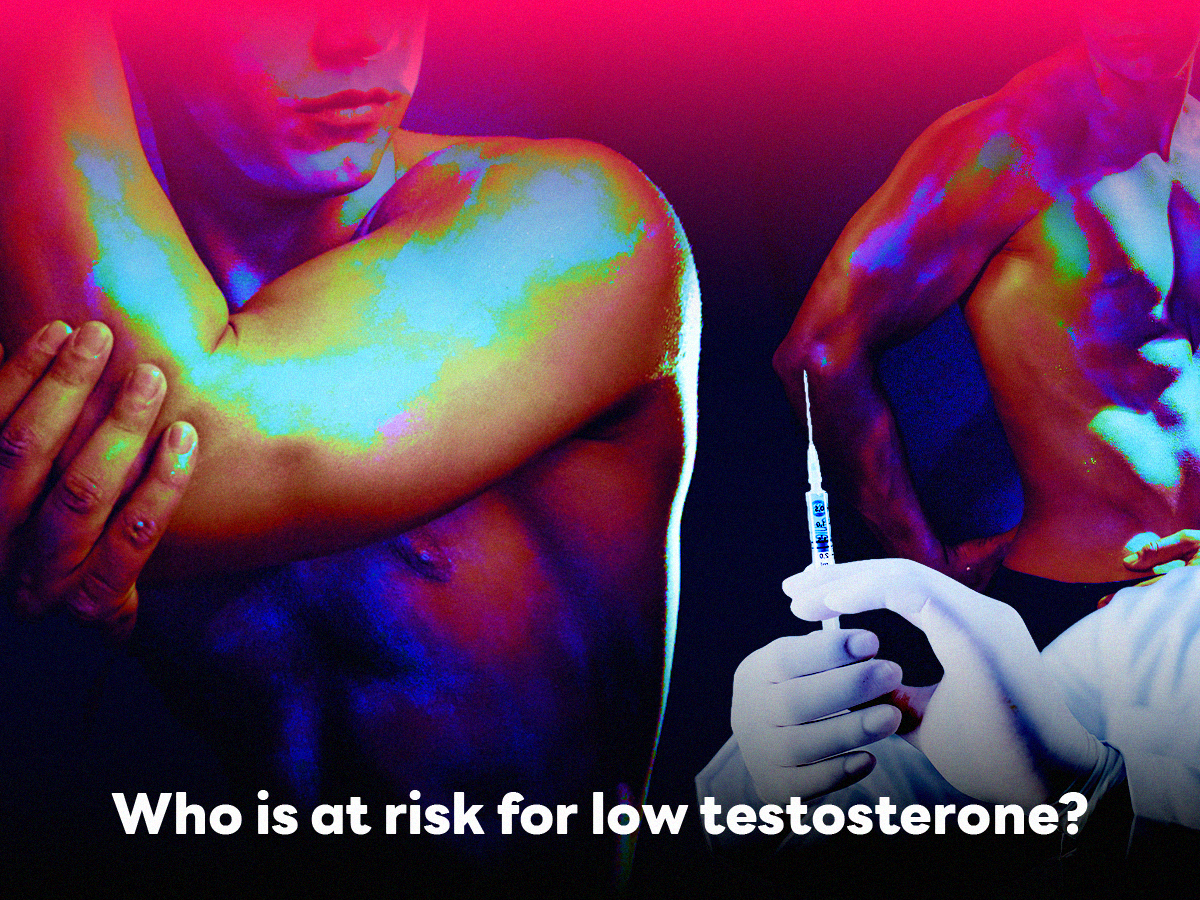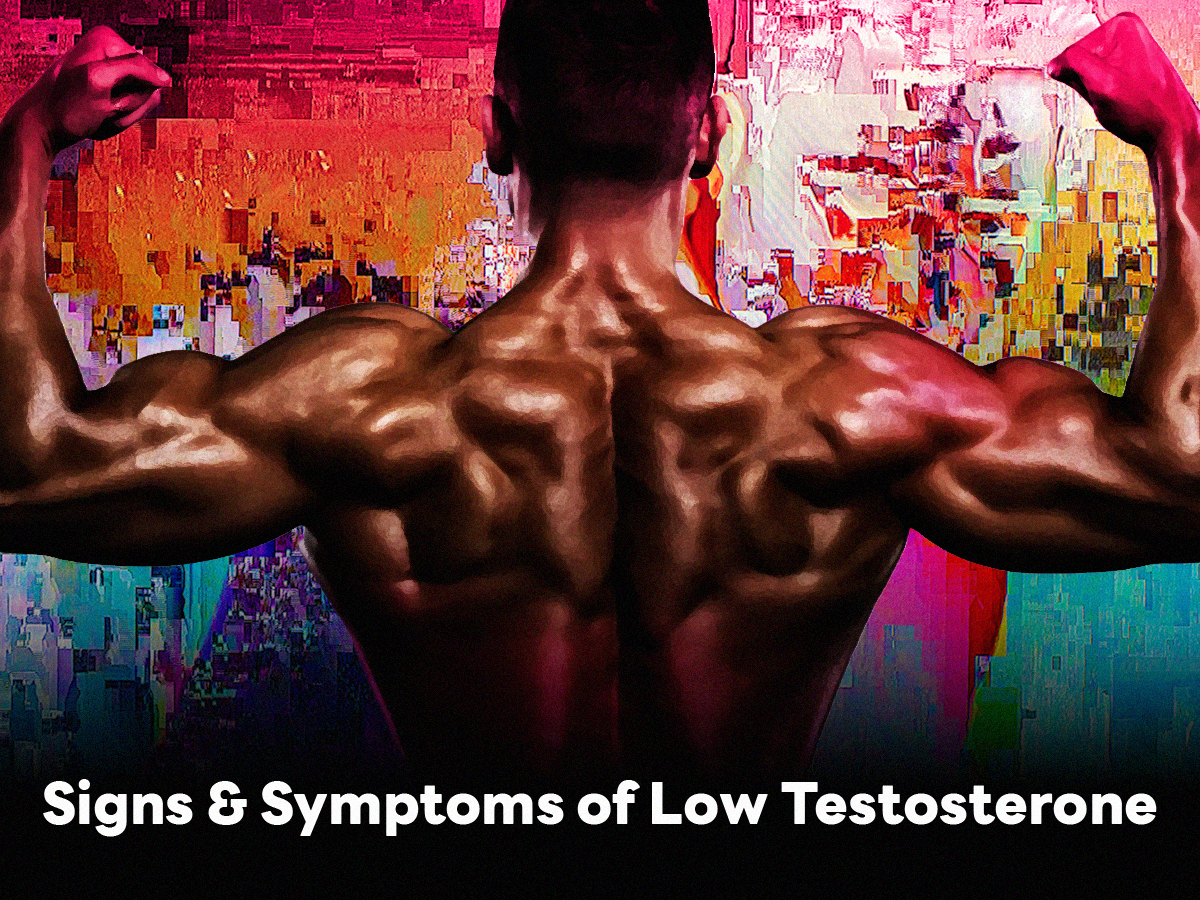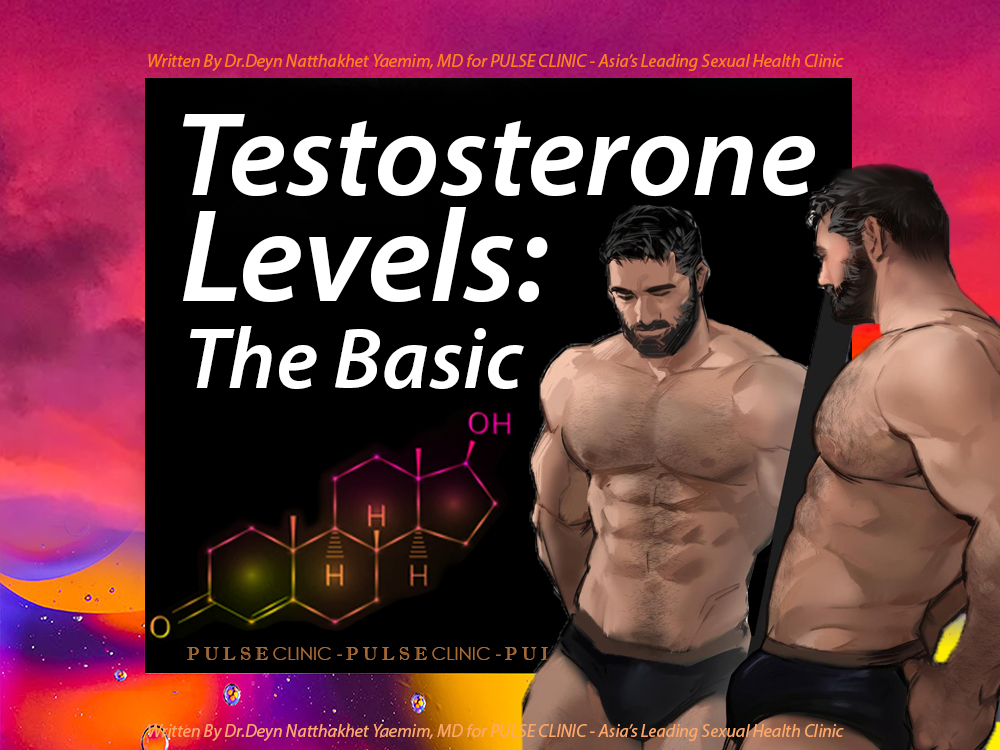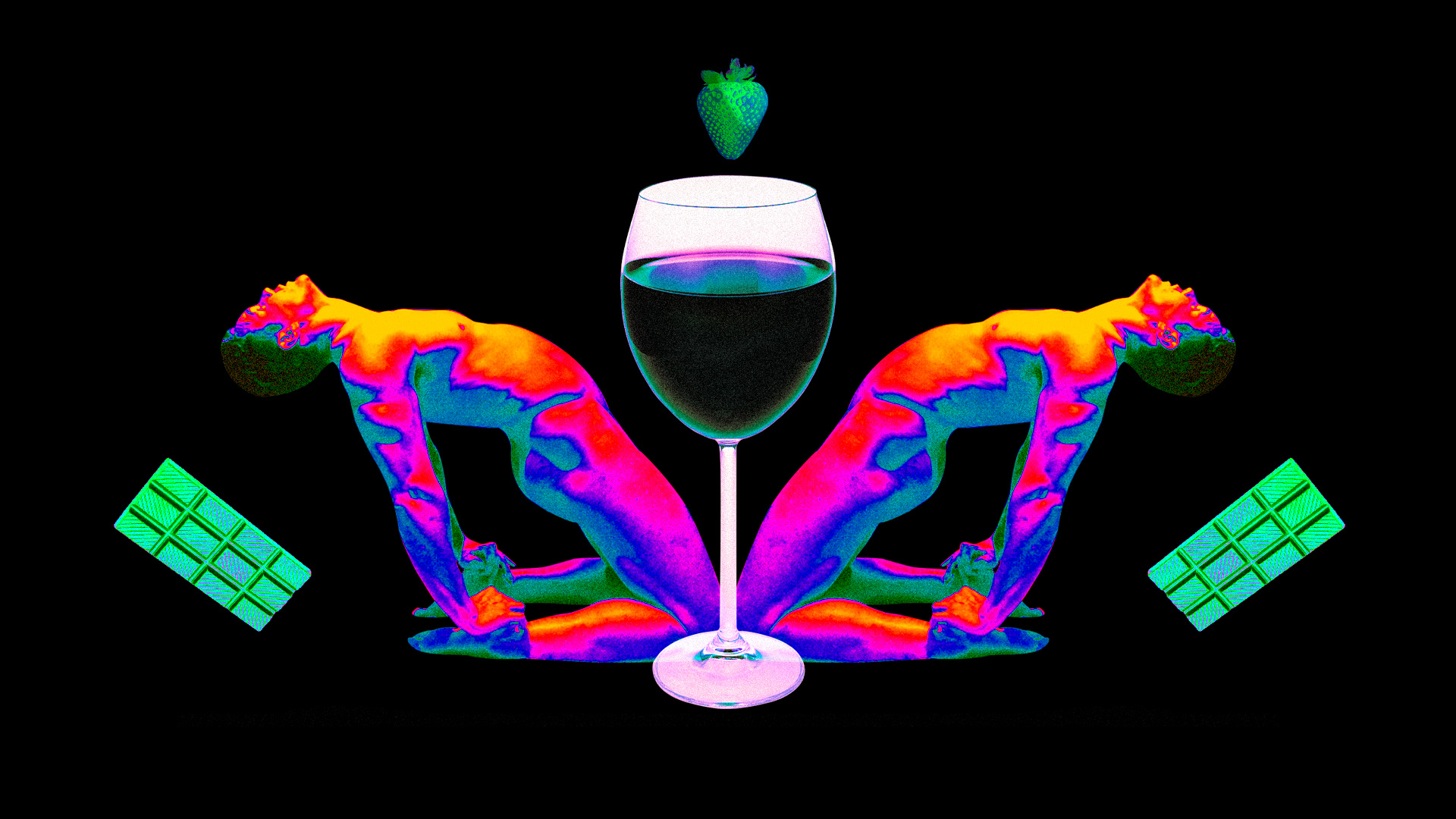Signs You May Have Low Testosterone
2885
Men may experience low testosterone with age or health conditions. Discover if your body is showing signs and symptoms of low testosterone.

Who is at risk for low testosterone?
While people assigned male and female at birth produce testosterone, we will focus on symptoms of low testosterone in those assigned male at birth. Research indicates that testosterone production generally declines with age. The American Urological Association reports that approximately 40% of males aged 45 and older experience low testosterone levels.
If you are unsure or concerned whether or not you have low testosterone, book an appointment with us to consult a doctor and pursue a suitable diagnosis and treatment, or contact us at info.bkk@pulse-clinic.com or any of the following platforms:
![]() +66 65 237 1936
+66 65 237 1936  @PULSEClinic
@PULSEClinic ![]() PulseClinic
PulseClinic
Signs & Symptoms of Low Testosterone
A significant drop in testosterone production may lead to various symptoms. Low testosterone often presents with subtle signs, which can include:
1. Low sex drive
Testosterone plays an important role in your sex drive or libido. While a decline in sex drive can be a normal part of aging, people with low testosterone are likely to experience a more significant reduction.
2. Challenges with getting and sustaining an erection
Testosterone helps facilitate an erection by signaling brain receptors to produce nitric oxide, a molecule that initiates a series of chemical reactions leading to an erection.
With low testosterone, you might struggle to achieve an erection before sex or experience difficulties with spontaneous erections, such as those occurring during sleep.
However, some other health conditions can also cause erectile dysfunction, such as:
- Diabetes
- Thyroid disorders
- High blood pressure
- High cholesterol
- Depression
- Stress
- Anxiety
- Smoking & alcohol use
3. Hot flashes
Hot flashes can indicate low testosterone and may feel like a sudden wave of warmth. Other symptoms you might experience include:
- Excessive sweating
- Flushing of the skin
- Night sweats
Add us on Line and stay in touch.
4. Hair loss
Testosterone contributes to hair growth. While balding is a common aspect of aging for many men and can be genetic, low testosterone levels may also lead to the loss of body and facial hair.
5. Fatigue
Men with low testosterone may experience severe fatigue and reduced energy levels. If you’re consistently tired despite adequate sleep or struggle to find motivation for exercise, low testosterone could be a factor.
6. Reduced muscle mass
A 2016 review found that while testosterone influences muscle mass, it does not necessarily impact strength or function. Men with low testosterone may observe a reduction in muscle mass.
7. Increased body fat
Low testosterone levels can lead to increased body fat or gynecomastia, which is the enlargement of breast tissue. Gynecomastia may develop due to an imbalance between testosterone and estrogen in the body.
8. Reduced bone mass
Osteoporosis is a condition that impacts bone density. Testosterone plays a role in bone production and strength, so men with low testosterone, particularly older men, may have reduced bone density and a higher risk of fractures.
9. Mood swings
Men with low testosterone may experience mood swings. Given that testosterone affects various physical processes in the body, it can also impact mood and mental function.
10. Memory
Testosterone levels and cognitive functions, especially memory, tend to decrease with age. Consequently, doctors have hypothesized that reduced testosterone levels might contribute to memory impairment.
11. Smaller testicle and penis size
Testosterone is essential for the development of the penis and testicles, so low levels of this hormone might result in a smaller-than-average penis or testicles. However, other conditions and factors can also lead to a reduction in their size.
12. Low blood counts
According to a 2017 study, low testosterone levels might elevate the risk of anemia. The research found that men with low testosterone and anemia who were treated with testosterone gel showed improved blood counts compared to those who received a placebo. Additionally, blood counts also improved in men with anemia due to known causes, such as iron deficiency.
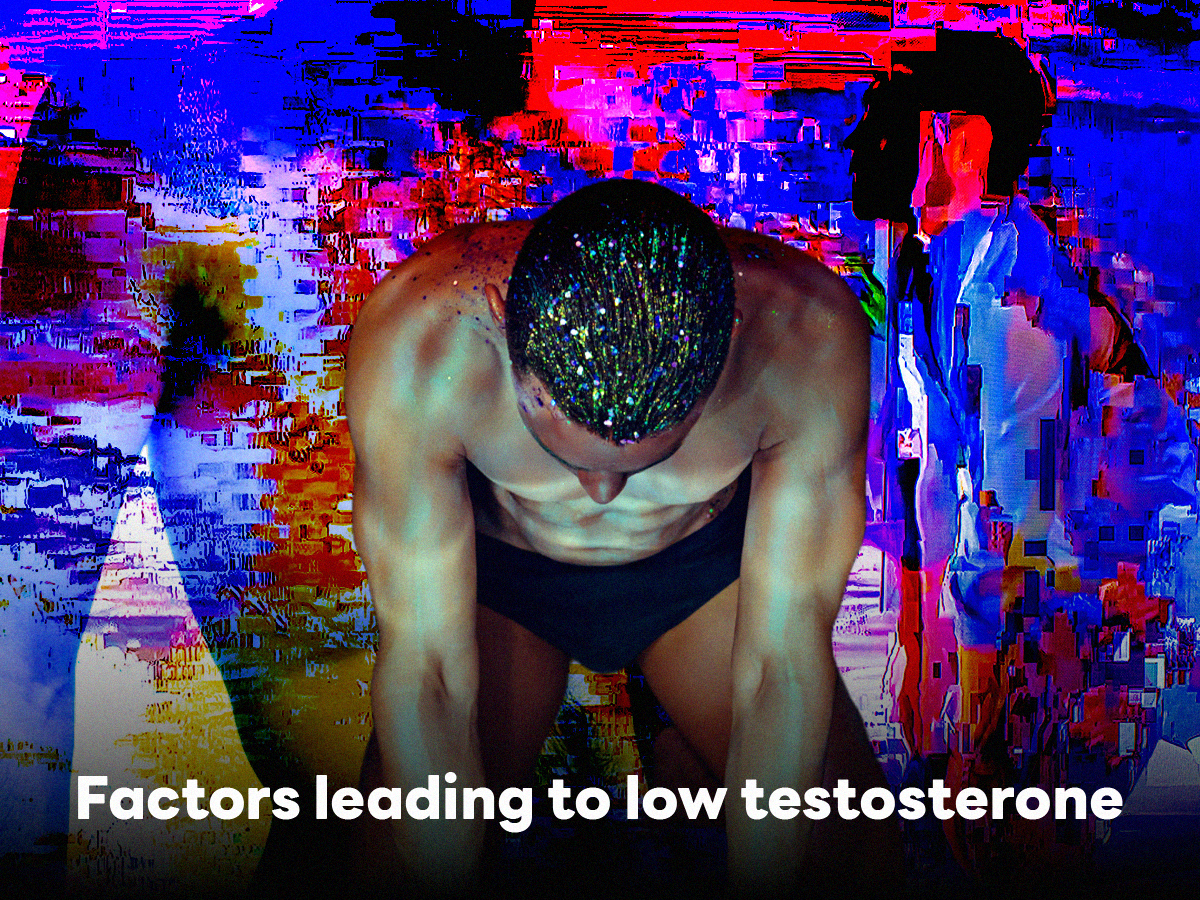
Factors leading to low testosterone
Testosterone levels naturally decline with age in males, but various other conditions or factors can also contribute to low testosterone. These may include testicle injuries, cancer treatments such as chemotherapy and radiation, stress, AIDS, alcohol use disorder, kidney disease, cirrhosis of the liver, pituitary gland conditions, autoimmune disease, infection, obesity, metabolic syndrome, or using certain medications.
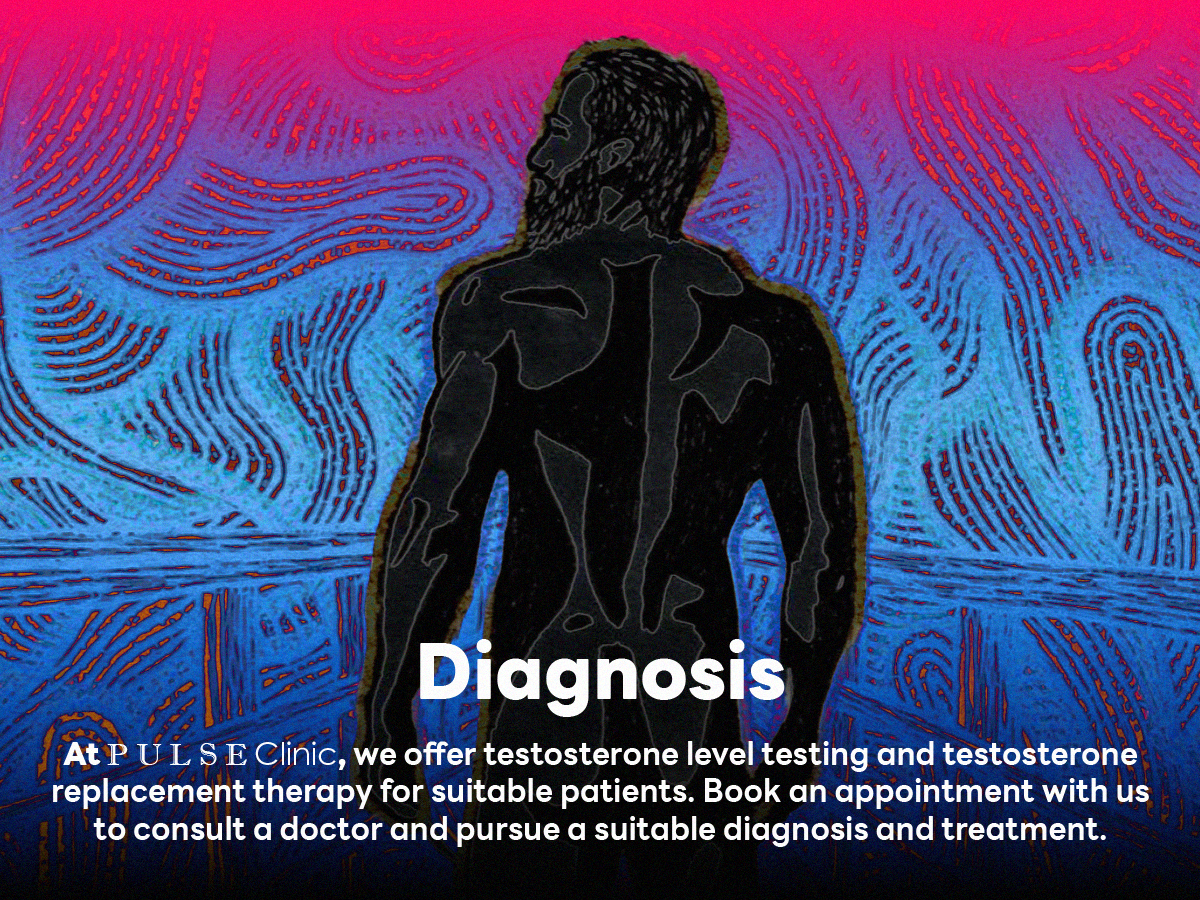
Diagnosis
Testosterone levels generally range from 300 to 1,000 nanograms per deciliter (ng/dL). Low testosterone is defined as having levels below 300 ng/dL. A serum testosterone test can measure your testosterone levels.
Additional tests may be conducted to identify the underlying cause of low testosterone, including:
- Serum testosterone
- Luteinizing hormone
- Blood prolactin level
At PULSE Clinic, we offer testosterone level testing and testosterone replacement therapy for suitable patients. If you are unsure or concerned whether or not you have low testosterone, book an appointment with us to consult a doctor and pursue a suitable diagnosis and treatment.
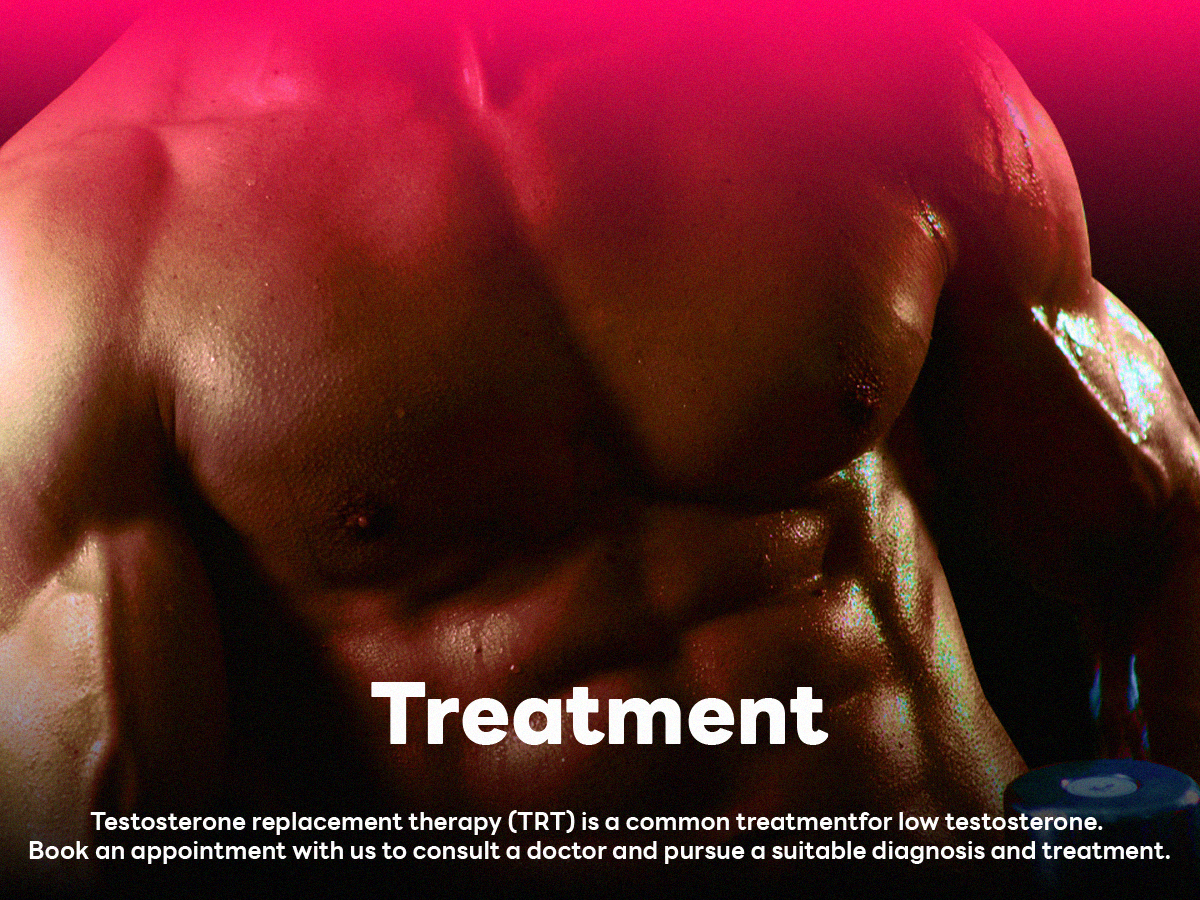
Low Testosterone Treatment
Testosterone replacement therapy (TRT) is a common treatment for low testosterone. If you are experiencing bothersome symptoms of low testosterone, consult with a doctor to see if testosterone replacement therapy might be appropriate for you.
Testosterone replacement therapy (TRT) is a long-term commitment. Discontinuing the treatment will result in a decrease in your testosterone levels. The side effects can include:
- Acne
- Enlarged prostate
- Shrinking testicles
- Decreased sperm count
- High red blood cell count
- Fluid retention
- Swollen feet or ankles
TRT may not be right for you if you:
- Have an untreated heart condition
- Have breast or prostate cancer
- Suffer from sleep apnea
- Experience elevated red blood cell counts
- Intend to conceive children
Low testosterone levels may raise your risk of developing additional health conditions, which might need treatment.
It is not uncommon for men to experience a gradual decrease in testosterone as they age. The older you get, the less your body will produce testosterone. Some other factors can also cause low testosterone so, you will need to consult a doctor to determine the cause of your condition, or get your testosterone levels tested.
If your symptoms are bothering you and affecting your personal life, we strongly suggest consulting a professional. If you are unsure where to start, we offer testosterone level testing at PULSE Clinic.
Trust PULSE CLINIC to take care of your health like other 45000 people from over 130 countries. We provide discreet professional service with high privacy. Here to help, not to judge.
Loading...
Clinic Locations
Loading...












